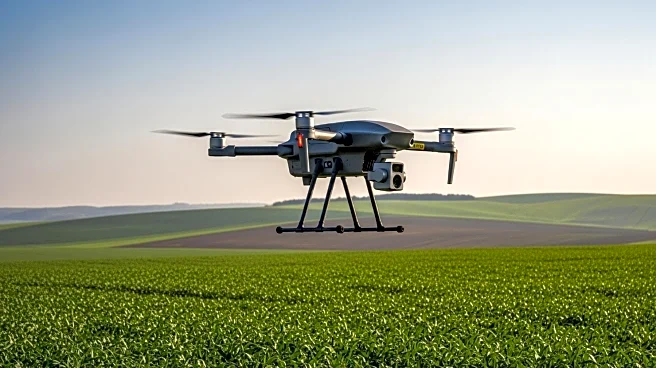What's Happening?
The Agriculture and Food Security Ministry is implementing a national strategic system to monitor risks associated with food imports. This initiative follows the events of October 7, which underscored Israel's vulnerability due to reliance on imports amidst increasing boycotts and climate change impacts. The system aims to identify global risks that could disrupt food supply, utilizing a model from the Institute for National Security Studies. It will generate warnings and policy recommendations to facilitate preventive measures and ensure continuity despite changing trade policies and extreme climate conditions. The framework is part of the National Food Security 2050 Program, addressing the fact that over 90% of Israel's grains and fish, more than 80% of legumes, oilseeds, peanuts, and nuts, and over 60% of beef are imported.
Why It's Important?
This development is crucial for Israel's food security, as it seeks to mitigate risks associated with heavy reliance on imports. The strategic system is expected to enhance preparedness for future crises, shifting from reactive to preventive measures based on data and forecasts. This approach is vital for maintaining food supply stability in the face of geopolitical tensions and climate change, which can disrupt international trade. The initiative could serve as a model for other nations facing similar challenges, emphasizing the importance of local production and diversified supply sources to ensure resilience against external shocks.
What's Next?
The Agriculture Ministry plans to publish the draft of the national food security plan for public comment, allowing stakeholders to provide input on the proposed measures. This step is expected to refine the strategy and ensure comprehensive coverage of potential risks. The ministry will likely engage with international partners to secure alternative supply routes and strengthen local production capabilities. Continuous monitoring and adaptation of the system will be necessary to address evolving threats and maintain food security.
Beyond the Headlines
The establishment of this monitoring system highlights broader ethical and strategic considerations in global trade and food security. It underscores the need for countries to balance import reliance with sustainable local production, considering environmental impacts and geopolitical dynamics. The initiative may prompt discussions on ethical sourcing and the role of international cooperation in addressing food security challenges.








